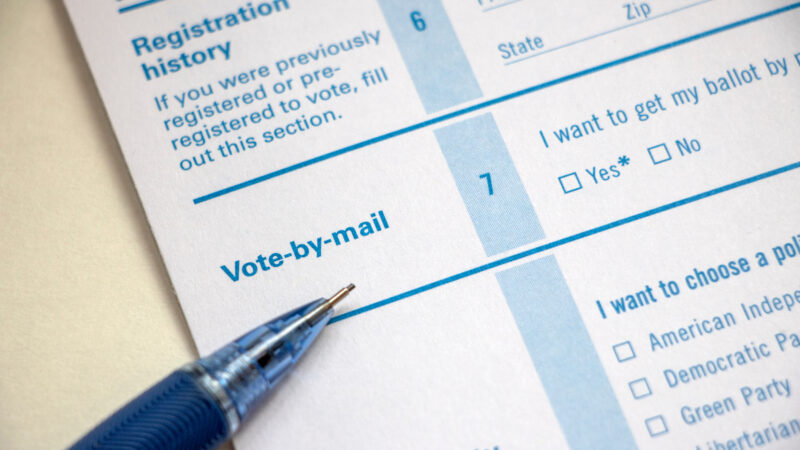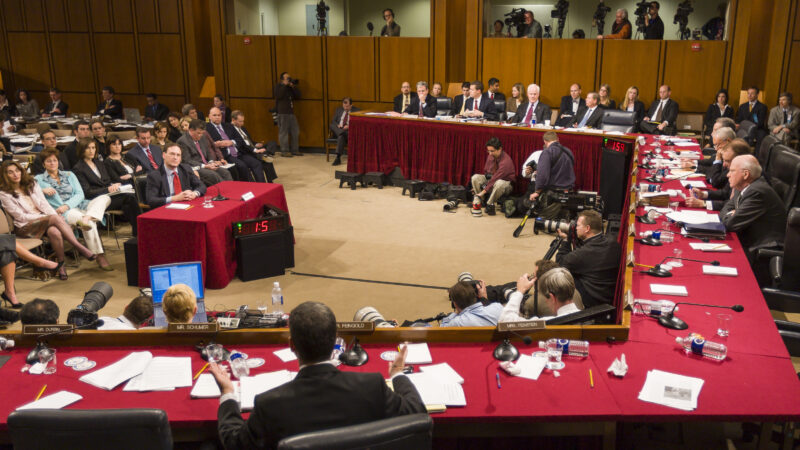Genevieve leads a team focused on defending civil society against a range of threats, protecting civic space and other democratic guardrails, and securing accountability for abuses of power through a combination of strategic litigation, policy advocacy, and communications.
How Democracy Concerns & January 6th Influenced Midterm Voting
- December 16, 2022
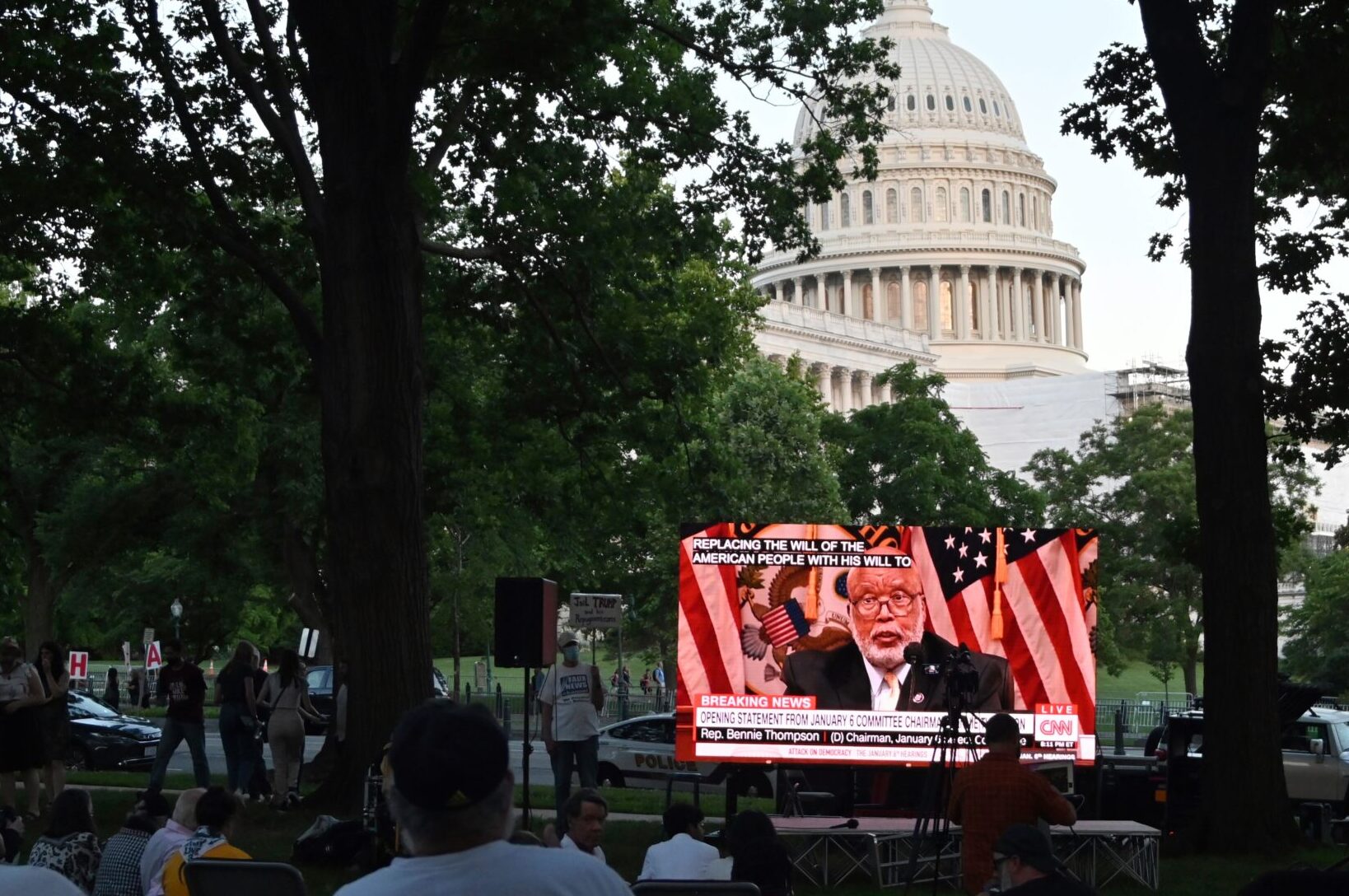
New midterm polls conducted by Citizen Data, on behalf of Protect Democracy, in five battleground states finds that voters—especially voters who split the ticket—were strongly motivated to respond to threats to democracy. These split-ticket voters were especially influenced by the events of January 6th and the January 6th Select Committee’s hearings. In many of these states, election-denying candidates not only lost, but also significantly underperformed relative to more moderate Republicans running on the same ballot.
In four of the five states, Republican and Independent ticket-splitters were substantially more likely to name “preventing a repeat of January 6th attacks” as a motivating concern in their choices. And nearly 46 percent of voters across the five states said that the January 6th Select Committee’s hearings impacted their vote in the midterm election. Among those, 92% said that the hearings were either somewhat or very important to their vote.
More broadly, this polling reinforces historical and international experience with investigative commissions and similar bodies as mechanisms of accountability. The data demonstrate that the Select Committee already has played an important fact-finding and truth-telling role, promoting a more widely shared understanding of events on and leading up to January 6th, and helping to lay the groundwork for other forms of accountability.
According to Mindy Finn, the CEO of Citizen Data, “our research shows that the need to prevent a repeat of January 6th had an outsized impact on moving Republicans and Independents to reject anti-democratic candidates during the 2022 midterms, comprising the critical margins to victory in battleground states.”
The polls support the growing consensus that threats to democracy were a defining issue in these elections. “Protecting elections from partisan attempts at overturning the results” ranked in the top issues in every battleground state, and 18-20 percent of voters in each state specifically listed avoiding a repeat of the events of January 6th as a top-three issue.
Ticket-splitters were particularly influenced by democracy concernsTicket-splitters were particularly influenced by democracy concerns
As with any poll, it is difficult to trace the link between what voters say and the election results themselves. Roughly 61% of voters said protecting democracy was “very important” in their voting decisions. But did these democracy-minded voters really change their votes? Or were they likely to vote for Democrats all along?
This poll helps demonstrate the true effect by narrowing in on ticket-splitters — voters who voted for at least one Democratic and one Republican candidate. In many states, these voters helped determine the outcome of the election and largely drove the underperformance by election-deniers and similar extremist candidates.
In four of the five states, January 6th had an outsized impact for Republican and Independent ticket-splitters — voters who cast a vote for at least one Democratic candidate, even if they lean conservative. The impact was most significant in Arizona, where 20 percent of ticket-splitters ranked January 6th as a top issue.
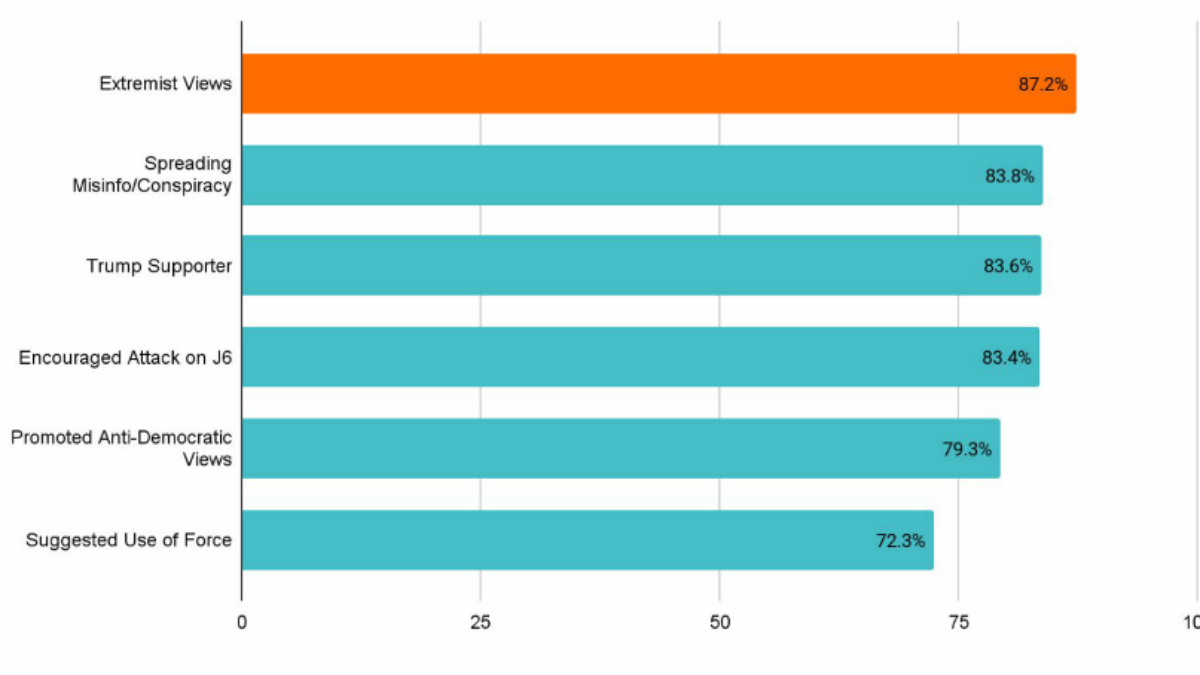
These ticket-splitters overwhelmingly reported concerns about one or more Republican candidates being dangerous to democracy. Eighty-three percent specifically noted that the candidate had encouraged the attack on January 6th.
The events of January 6th continue to reverberate politicallyThe events of January 6th continue to reverberate politically
In many ways, engagement with the January 6th Select Committee has been unprecedented, above all in the degree to which voters carefully followed a set of congressional hearings (events not famous for broad viewership). These findings further underscore that wide viewership, with 57 percent of voters across all five states reporting at least some exposure to the hearings and 35 percent reporting viewings at least once a week or more.
In turn, exposure to the details of the events of January 6th is tightly correlated with democracy as a voting concern, with more exposure to the Select Committee associated with a 27 percent increase in concern for democracy. While this correlation is unlikely to be entirely causal — greater concern likely led certain voters to tune in more — it does highlight the salience of the Select Committee hearings for this set of voters.
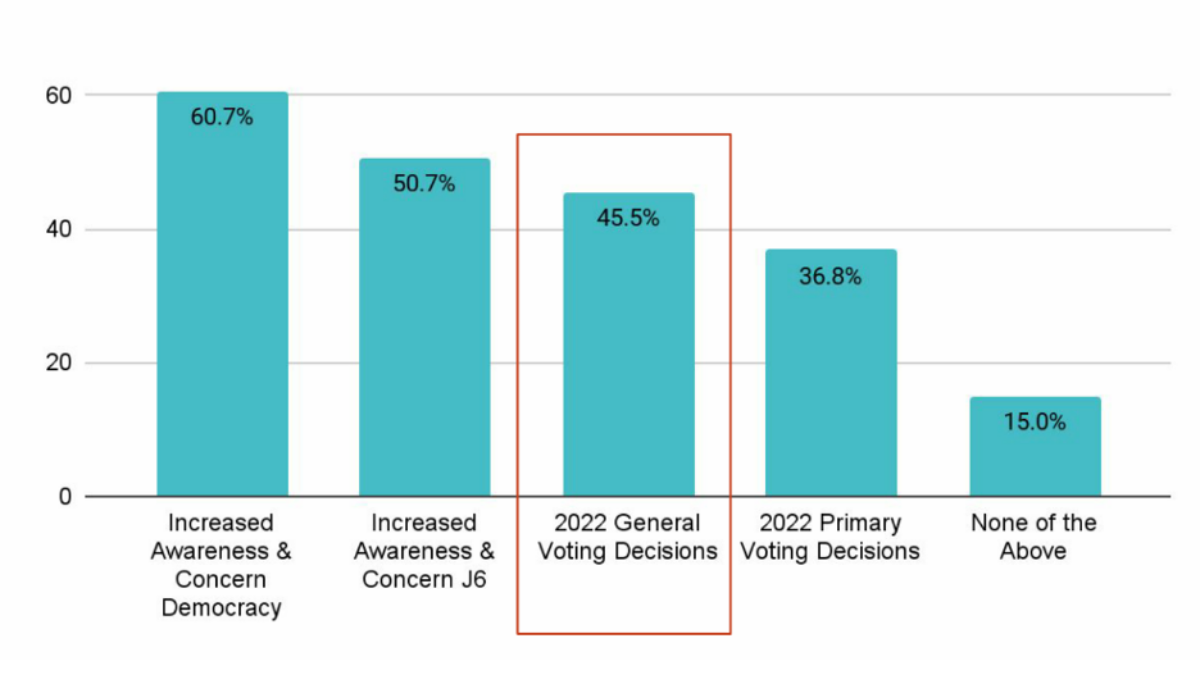
According to Finn, this isn’t surprising. “As we’ve tracked reactions to the January 6th Select Committee hearings over time,” she said, “we can credit this movement to the Committee’s intentional and bipartisan approach to justice which persuaded key voters that democracy matters more than politics and attacks on that democracy won’t be tolerated.”
Indeed, these voters say quite openly that learning more about the details of January 6th influenced their voting decisions. When asked, “[i]n what ways, if any, did the hearings… impact your political beliefs and/or behavior this year,” 46 percent of respondents said it impacted their vote in the general election, and 37 percent said it impacted their vote in the primary.
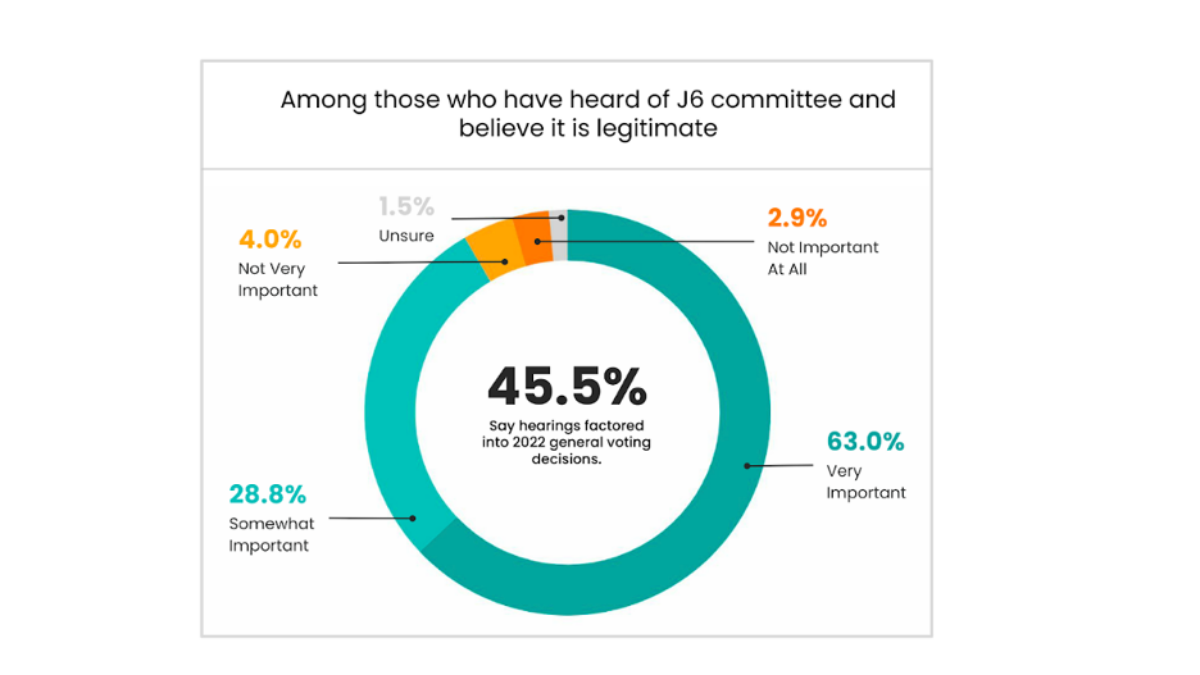
Further, among voters who said the hearings impacted their midterm vote, 92 percent said that the hearings were either somewhat or very important to their vote.
Implications for accountabilityImplications for accountability
Together, these findings add to the growing evidence that voters are committed to accountability for the attack on January 6th, including for politicians who led the plot to overturn the 2020 election, encouraged violence, and sought to lay the groundwork for future efforts to corrupt elections.
Moreover, these polls demonstrate that there likely is a substantial and committed pro-democracy voting block in the United States that is willing to set aside views around the economy and other specific policy issues to vote against election-denying candidates. This has meaningful implications for future elections, but also for other forms of accountability. The work of the Select Committee has had a demonstrable impact on voters, a strong indication that it has succeeded in promoting a shared understanding of the events on and leading up to January 6th, while also laying the groundwork for future accountability in the form of, among other things, criminal prosecution and various kinds of legal and institutional reform.
Related Content
Current United States Authoritarian Threat Index score: 3.3/5 Severe Threat •
-
Civil Violence 2.5/5 • Significant Threat
-
Elections 2.7/5 • Significant Threat
Join Us.
Building a stronger, more resilient democracy is possible, but we can’t do it alone. Become part of the fight today.
Donate
Sign Up for Updates Sign Up for Updates
Explore Careers Explore Careers
How to Protect Democracy How to Protect Democracy

